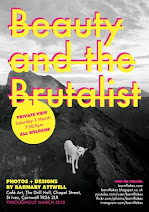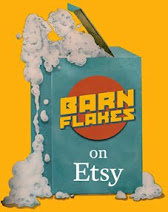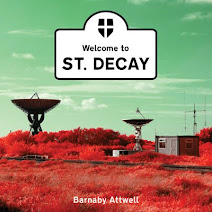I make no excuses whatsoever for paedophiles but when I have mentioned to people the punishment and treatment of the affliction (unfortunate sexuality? Disease? Aberration?) seems to me barbaric and draconian, their response is always 'Well what would you do if someone was interfering with your daughter?', then my response is always, of course, I would track them down and murder them. It seems to be a condition we are very reluctant to understand or try to cure, with daily Daily Mail-style executions and the fear that there is a paedo on every street corner, similar to the urban myth that you are never more than four foot away from a rat (both apparently false). Indeed, you may even know one! He (always a he) may even be your best friend or your brother!
I really don't think (say) Ian Watkins, the convicted paedophile from The Lost Prophets, woke up on a daily basis and thought to himself, 'Oh frabuous joy, I'm so glad to be sexually attracted to babies'. In comments he and his band members have made, it seems his actions were more in tune with a drug addict: the denial, the lying and manipulation are all characteristics of an addict determined to get their fix. The public reaction to it – disgust, horror – is of course understandable, but there is zero attempt at understanding or sympathy (perhaps rightly so in his case). We want paedophiles punished rather than 'cured'. Is a cure even possible (jail certainly isn't the answer)? Once upon a time we tried to 'cure' homosexuals. Cognitive therapy is a possible solution, as with most paedophiles the reason for their condition will be shaped by their upbringing and not sexual preference.
The unrelenting witch hunt that has been Operation Yewtree has spared almost no one, whether guilty or innocent (it's generally been guilty until proven innocent – in other words, the opposite of what the law is meant to be). Childhood heroes have been mercilessly chopped down – and rightly so, of course, if they are guilty, but it's been less clear sometimes if a celebrity 'just' pinched a woman's bum in the 1970s. Out of all the arrested minor celebrities arrested, most it seems were found not guilty, including Paul Gambaccini, Jim Davidson, Freddie Starr, Jimmy Tarbuck and William Roache. Dave Lee Travis, though eventually convicted, was initially found not guilty of 12 charges, until he was retried and found guilty of one.
So seeing as death (ie Jimmy Savile; you can't wake the dead but you can say what you like about them – the last I heard Savile had been indulging in necrophilia in hospital morgues; who knows, next he'll be held responsible for the Holocaust) or era (ie forty years ago) doesn't seem to pose a problem, why not dig up
Eric Gill's grave (1882-1940; typographer and sculptor whose fonts and sculptures adorn such institutions as the BBC and Penguin Books), who had a long sexual relationship with his daughter and liked to watch his wife have sex with farmyard animals. Or what about Michelangelo (1568-1629), Leonardo da Vinci (1452-1519) and Caravaggio (1572-1610) with their suspect and probable sexual interest in young boys? Let's gather up all their paintings and put them on a bonfire, in a similar vein to HMV stripping their shelves of Lost Prophets CDs (because they are crap would have been a more valid reason).
Whilst
minor TV personalities and celebs from the 1970s are being bought out
of retirement and arrested and humiliated,
rock stars like David Bowie, Bill Wyman and Jimmy Page have got away
scot-free with similar – and a lot more – jinks. Them, and many other
rock stars, indulged in sex with minors in the 1970s but Jimmy Page's
behaviour takes it to a whole other level (and presumably a Whole Lotta
Love). Page, guitarist in Led Zeppelin, kidnapped a 14-year-old girl, had sex with her and held her captive for years.
There's something ironic about Top of the Pops presenters from the
seventies all being prosecuted for molesting girls, whilst the rock
stars they were presenting on the show were getting up to a lot worse. (I've never really understood in general how rock stars are allowed to get up to all kinds of illegal shenanigans – indeed, it's positively expected for them to indulge in sex, drugs and, well, rock 'n' roll and to somehow mostly live outside the law.)
There are, I presume, many people who suffer from the affliction but don't act on it, just as there are many lonely, frustrated heterosexual men who remain just that (and don't act on it). But I have a problem with every paedophile, when caught, always having thousands of indecent images on their computers. Surely this isn't the same for the lonely, frustrated heterosexual (do they all turn to porn/rape)? What is it about paedophiles that makes them so, well, perverse? Kevin Bacon in The Woodsman (2004; based on a play) made a brave attempt to present a sympathetic portrait of a paedophile trying to rebuild his life after a prison sentence. But this kind of portrayal and attempt at understanding is in the minority.
To me, and many I guess, it's on a par with murder as an act I just cannot fathom or understand, and not sure I want to. But to try to understand and treat it is a better answer than hatred and lengthy jail terms. Most forms of abuse stem from childhood experiences and it becomes a never-ending cycle until it can be broken.




































